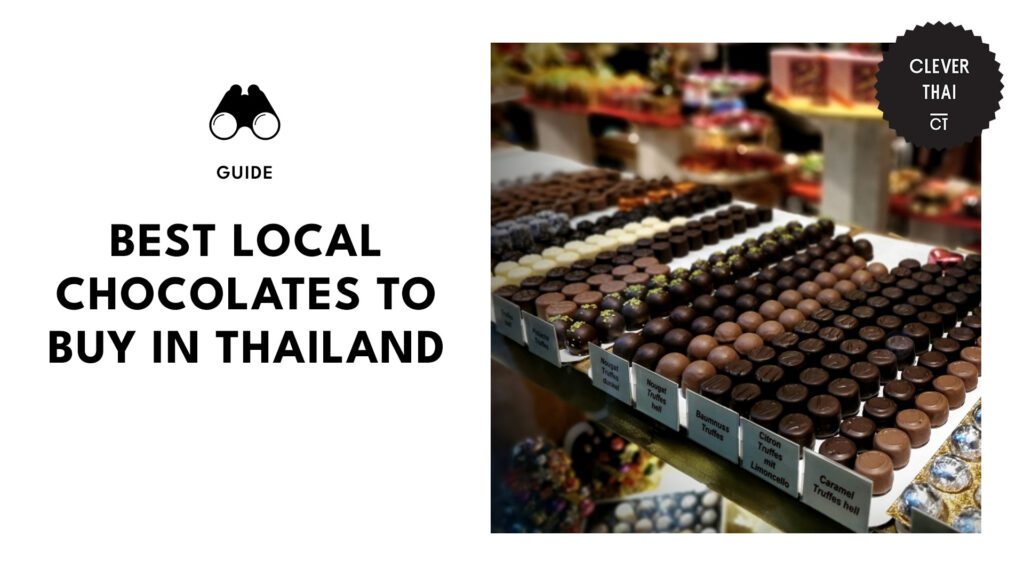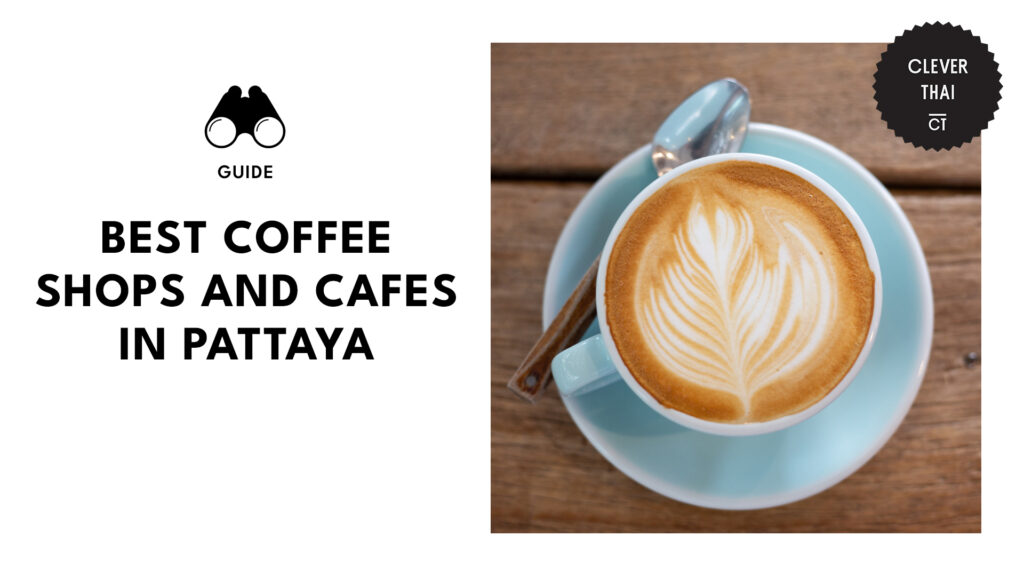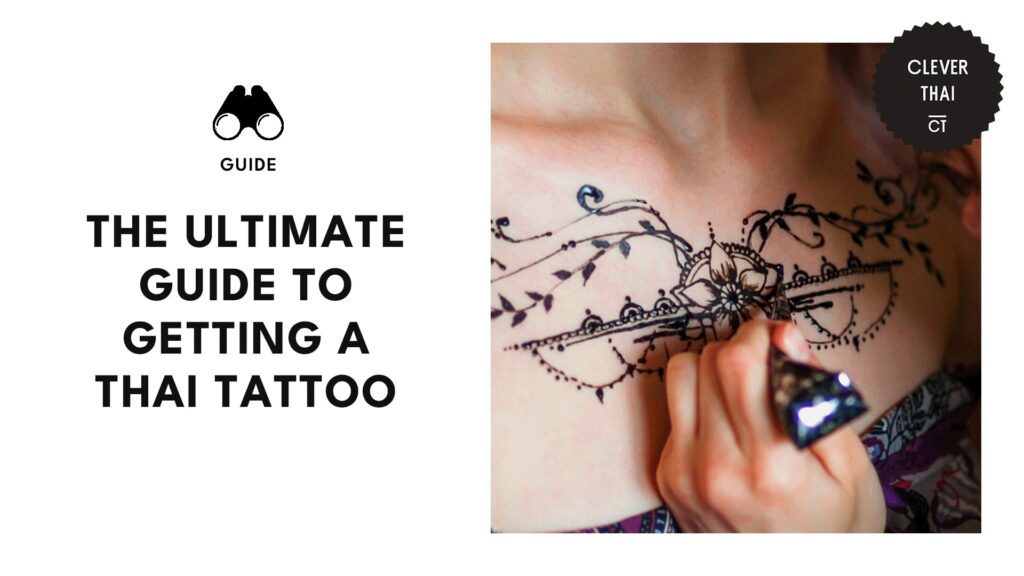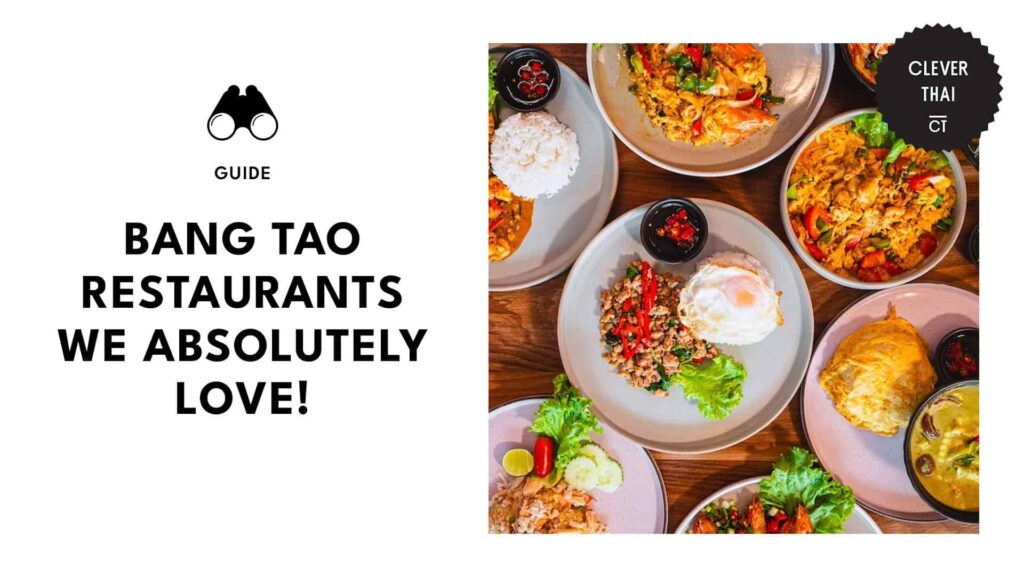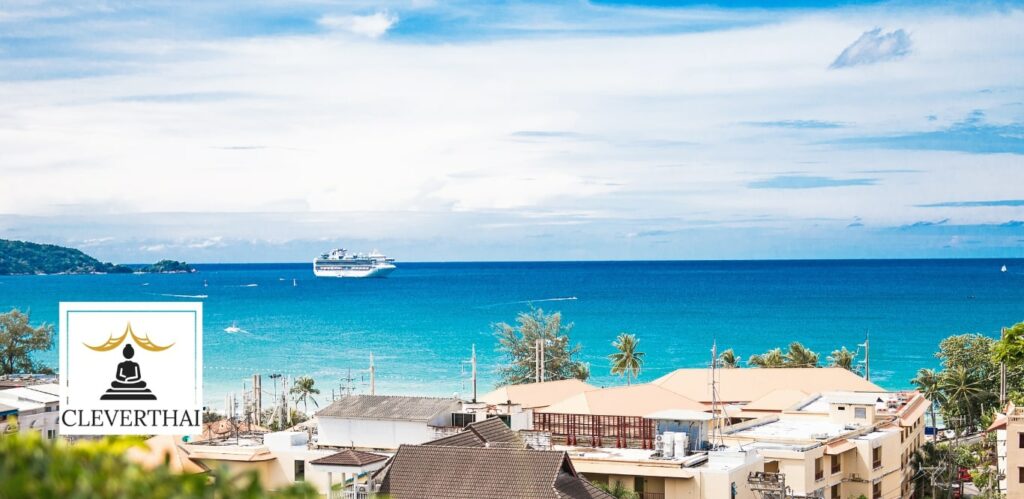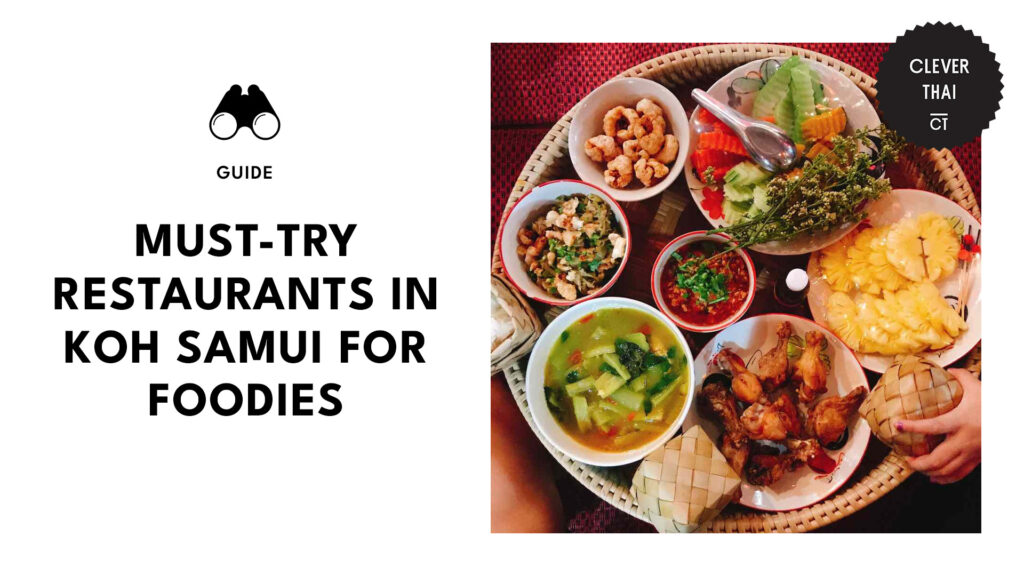Categories > Guides and Tips
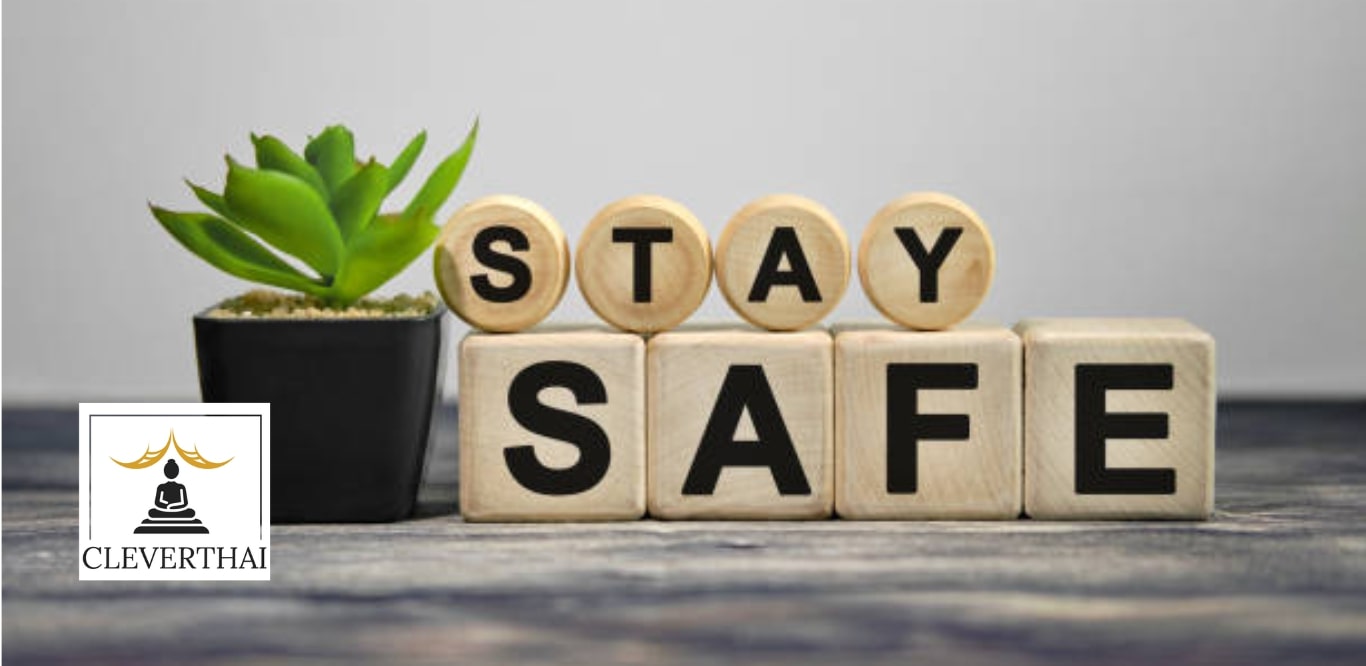
Staying Safe in Bangkok: Essential Tips for Travelers
Bangkok is a city with an abundance of delicious food, stunning scenery, and vibrant nightlife that attracts millions of tourists every year. However, safety is always a concern when travelling, especially in a big city like Bangkok.
To stay safe in Bangkok, keep valuables hidden, stay in well-lit areas at night, drink only bottled water, choose restaurants with good hygiene, and be respectful of Thai culture.
Also, protect yourself from pickpockets in crowded areas and be mindful of consuming undercooked or unsanitary food.
By following these tips, travellers can have a safe and enjoyable trip to Bangkok, Thailand. However, there’s more!
In this blog, we’ll provide safety tips for travellers planning to visit Bangkok, Thailand. It covers various aspects of safety, including transportation, personal safety, health and hygiene, cultural sensitivity, and emergency preparedness.
Read on to stay safe and enjoy your trip to Bangkok!
Is Bangkok a safe place?
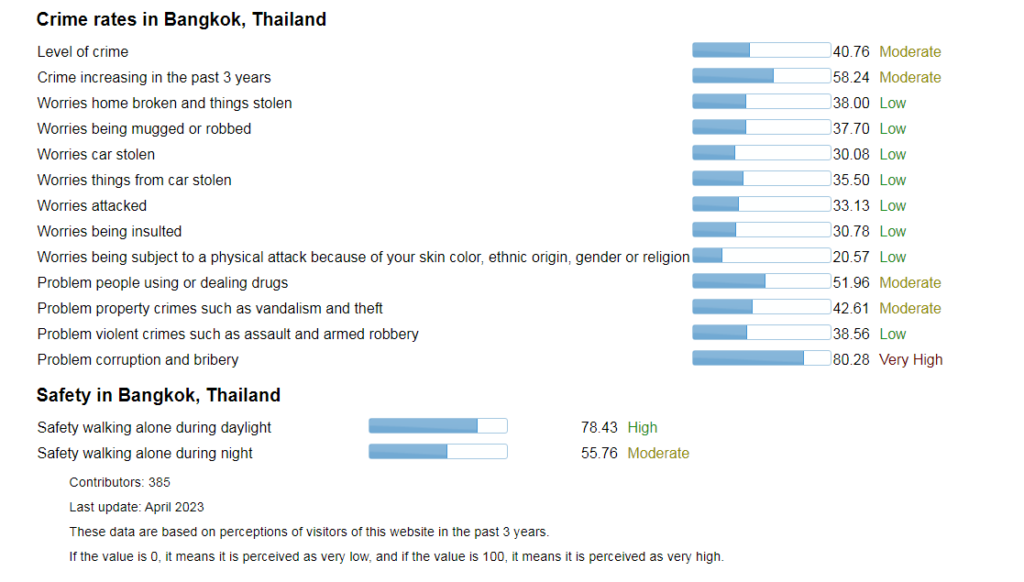
If you’re planning a trip to Bangkok, one of the questions you may be wondering is: is it a safe place to visit?
The answer is generally yes, but like any major city, there are certain safety concerns to keep in mind.
According to Numbeo, a website that collects user-generated data on cities around the world, the overall crime rate in Bangkok is moderate, with a safety index score of 59.68 out of 100.
The safety index score takes into account various factors, such as people’s perception of safety and the prevalence of crimes like theft and assault.
One common issue is petty crime such as pickpocketing and theft, which can occur in tourist areas.
Another common issue that travellers should be aware of are scams. Tourist scams are common in popular tourist areas like the Grand Palace, Khao San Road, and the Chatuchak Weekend Market.
Scammers may offer you a “special deal” on a tuk-tuk ride or a tour, or offer to take you to a “secret” temple. To avoid falling victim to these scams, it’s important to be wary of anyone who approaches you on the street with an unsolicited offer.
Finally, traffic accidents are also a concern in Bangkok, due to the heavy traffic in the city.
Based on the reports of the Accident Data Center of Thailand, annually, there are as many as 100,000 road accidents in Bangkok, resulting in hundreds of fatalities and tens of thousands of injuries.
Scams in Bangkok: Most Common Ones and How to Avoid Them
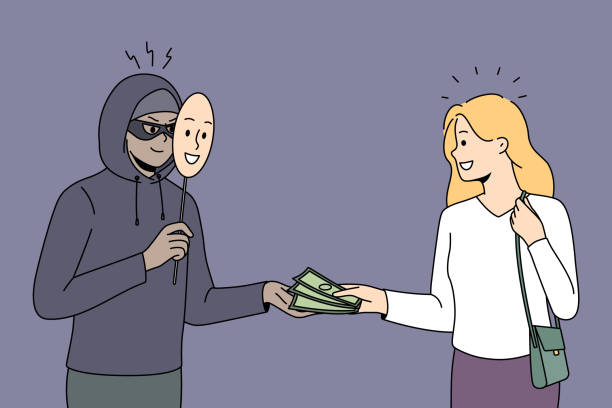
There are several scams to be aware of when visiting Bangkok, but with some knowledge and caution, you can avoid falling victim to them.
Here are some of the most frequent scams to watch out for:
Tuk-tuk Scam
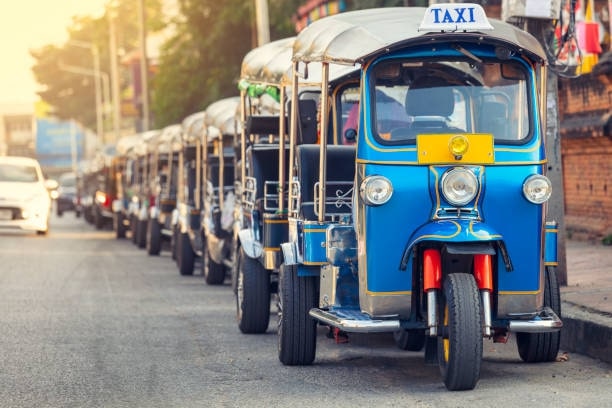
The Tuk-Tuk Scam is one of the most common scams in Bangkok.
Tuk-tuk drivers may offer you a ride at an incredibly low price, but they will then take you to various shops and tourist attractions where they will receive a commission for bringing you there.
To avoid this scam, be cautious of tuk-tuk drivers who approach you on the street and offer an unrealistically cheap ride. Instead, hail a tuk-tuk from a reputable company or use a ride-hailing app like Grab.
If you do decide to take a tuk-tuk, negotiate the price before getting in and make sure the driver knows exactly where you want to go.
If the driver suggests making stops at other places along the way, politely decline and insist on going directly to your destination.
Also, be aware that tuk-tuks are not the safest mode of transportation, so be sure to wear a helmet if provided and hold on tight.
| Local tip: Be aware that some drivers may try to take you on a longer route to increase the fare. You can use a map app on your phone to keep an eye on the route they’re taking. Also, always carry small bills and exact change, as some drivers may claim they don’t have change and overcharge you. |
Gem Scam
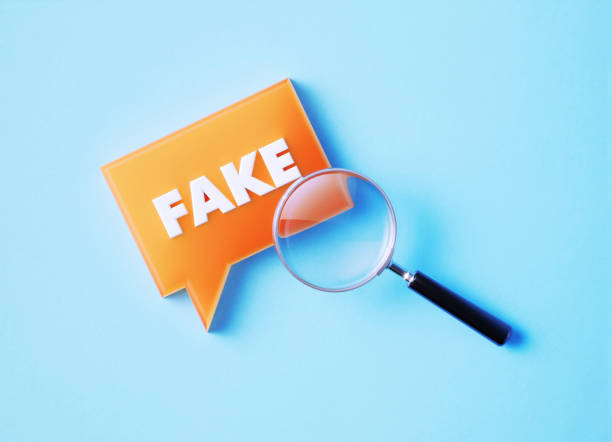
The gem scam is another common scam in Bangkok. The scam involves tuk-tuk drivers or friendly strangers who approach tourists and strike up a conversation.
They will eventually mention that there is a government-sponsored jewellery sale or gem show with incredible discounts that day.
The scammers will then offer to take you there, and if you agree, they will take you to a shop where you will be pressured to buy overpriced gems or jewellery.
These items are often fake or low quality, and the scammers receive a commission for each sale.
| Local tip: Be wary of anyone who approaches you on the street and offers to take you to a jewellery sale or gem show. Stick to reputable jewellery stores if you are interested in purchasing gems or jewellery. |
Grand Palace Scam
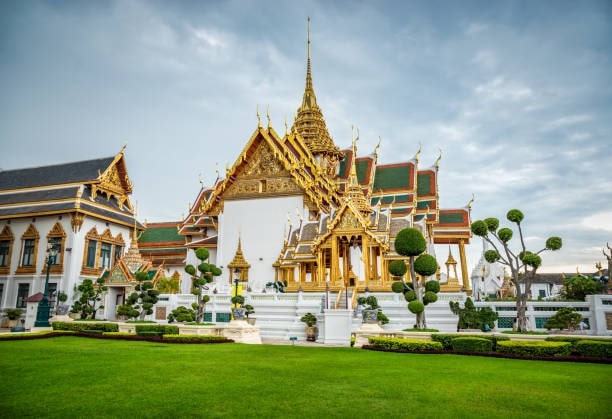
The Grand Palace scam is a common tourist scam in Bangkok where scammers will approach you and tell you that the Grand Palace is closed for various reasons like a special ceremony or a national holiday, and then offer to take you to other tourist spots or shops.
They may even offer you a cheap tuk-tuk ride or a free boat ride. However, these are all ploys to take you to shops or places where they will earn a commission for anything you buy.
| Local tip: Be aware of the opening hours of the Grand Palace and check them before you visit. Additionally, avoid visiting shops or tourist spots that are not on your itinerary, especially if you are not interested in buying anything. |
Tailor Scam
This scam is common in Bangkok where touts approach tourists on the street and offer to take them to a tailor shop where they can get high-quality custom-made suits or dresses at a fraction of the price they would pay back home.
However, once the tourists arrive at the shop, they are often subjected to high-pressure sales tactics and end up with low-quality garments that do not fit properly.
| Local tip: It’s best to do your research and find a reputable tailor shop before you arrive in Bangkok. Look for reviews online or ask for recommendations from your hotel or other trustworthy sources. When planning to go to a tailor shop, take your time to browse and ask lots of questions to ensure that you’re getting the quality and service you want. |
Money Exchange Scam
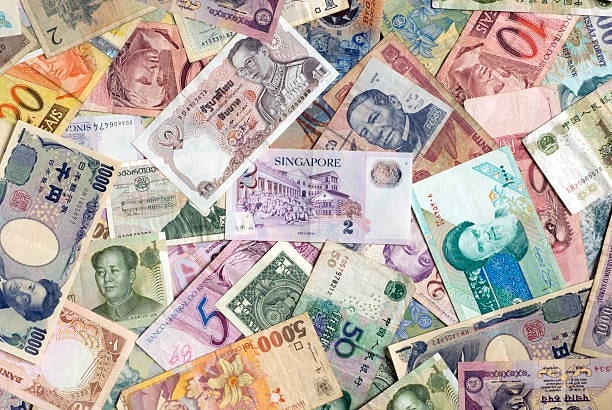
Money exchange scams are another common scam in Bangkok. Scammers will offer to exchange your currency for Thai Baht at a much higher rate than the official exchange rate.
They will also claim that there are no fees or commissions for the exchange.
However, once you give them your money, they will often count it in a confusing or misleading manner and end up giving you much less than what you expected or worse, they’ll end up giving you counterfeit bills.
| Local tip: We recommend exchanging your money at authorised money changers or banks. You can also research the current exchange rate beforehand to have a better idea of what to expect. |
Safety Tips for Tourists in Bangkok
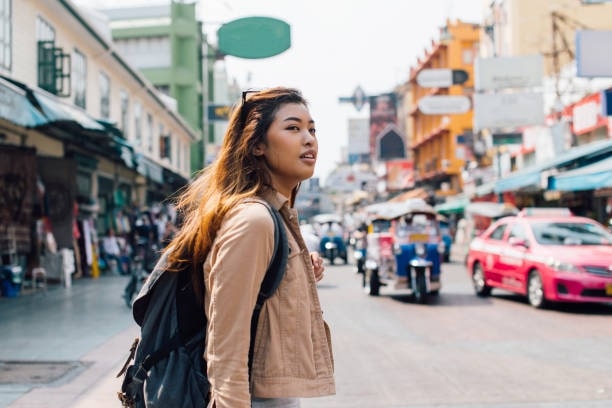
Just like anywhere else, it’s essential to stay safe while visiting Bangkok. This means taking measures to protect yourself from potential dangers, like crime, accidents, and health hazards.
Here are some essential safety tips so you can ensure a safe and enjoyable trip.
Choose the right neighbourhood
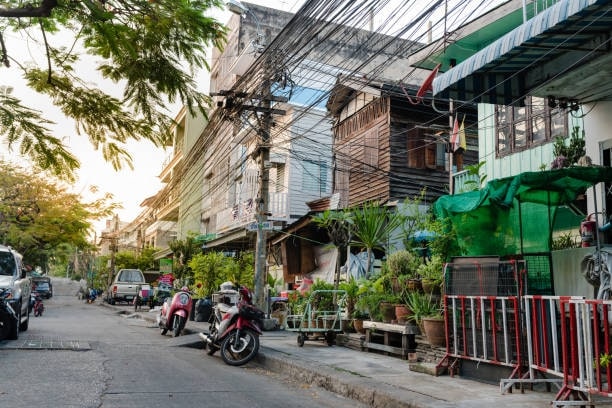
While Bangkok is a generally safe city, there are certain areas that have higher crime rates and should be avoided. These areas are often located in the outskirts of the city and are not typically visited by tourists.
To ensure your safety, it is recommended to stay in popular tourist areas such as Sukhumvit, Silom, and Khao San Road.
These areas are well-developed and have a high concentration of hotels, restaurants, and attractions, making it easier for you to move around and stay safe.
| Local tip: Before booking your accommodation, be sure to check the reviews and ratings of the place. This can give you an idea of the safety and security of the property and the surrounding area. |
Don’t give your passport as security
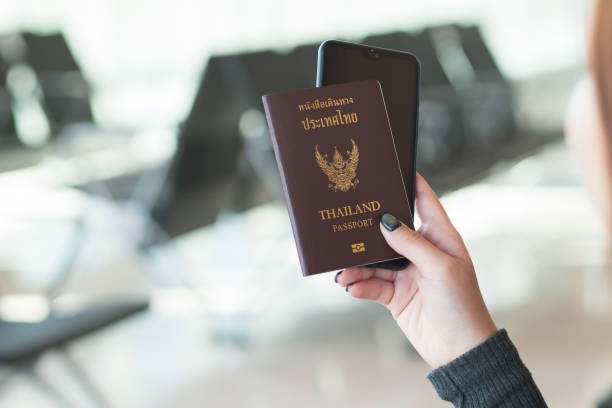
When you’re travelling to Bangkok, you may encounter situations where a business or hotel asks for your passport as security. However, it’s important to note that this practice is actually illegal in Thailand.
While some businesses may insist on holding onto your passport, it’s in your best interest to refuse and find another place to stay or do business with.
By giving your passport as security, you’re essentially putting your entire identity at risk. You never know who may have access to your passport while it’s in someone else’s possession, and it could lead to identity theft or other serious problems.
If you encounter a situation where a business or hotel insists on holding your passport, it’s best to politely decline and look for another option.
| Local tip: It’s a good idea to make a copy of your passport to carry around with you instead. This way, you can still provide identification if needed without putting your original passport at risk. Additionally, you can also consider staying at a reputable hotel or booking accommodations through a trusted travel agency to ensure that your passport and personal information are kept secure. |
Wear sunscreen and insect repellent
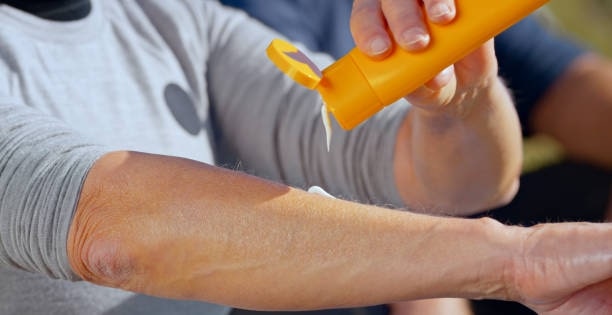
Thailand is a tropical country, and the sun can be intense, even on cloudy days. To avoid sunburn and skin damage, wear sunscreen with a high SPF rating and reapply regularly throughout the day.
Mosquito-borne illnesses like dengue fever and Zika virus are also a concern in Thailand, so it’s important to use insect repellent containing DEET and wear long-sleeved clothing and pants to protect yourself from mosquito bites.
| Local tip: It’s a good idea to wear lightweight and breathable clothing to avoid getting overheated. |
Drink bottled water and avoid tap water
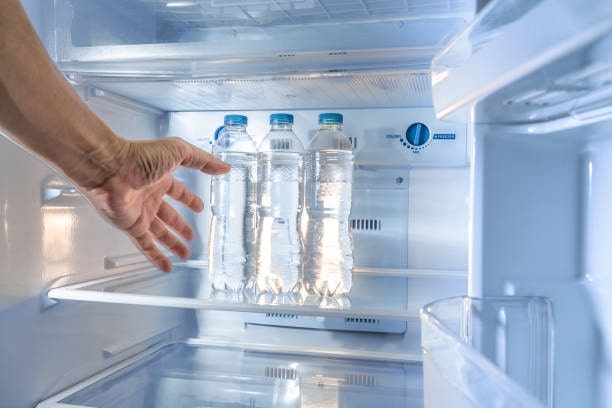
Tap water in Bangkok is not safe to drink, so it’s important to stick to bottled water or water that has been treated and filtered.
Be sure to check that the seal on the bottle is intact before drinking, and avoid ice made from tap water. Keeping hydrated is important in Bangkok’s hot climate, so make sure to carry a bottle of water with you at all times.
| Local tip: Carry a reusable water bottle with a built-in filter for added convenience. |
Avoid street food that may be undercooked or unsanitary
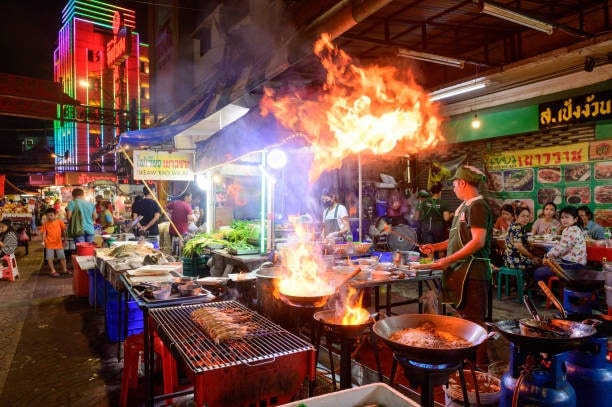
Street food is a popular and tasty way to experience Bangkok’s culinary culture, but it’s important to be cautious when choosing what to eat.
Avoid food that looks undercooked or has been sitting out for a long time, as it may be contaminated with bacteria that can cause food poisoning. Stick to stalls that are popular with locals, as they are likely to have fresh, safe food.
| Local tip: If a food stall has a long line of locals waiting to be served, it’s usually a good sign that the food is fresh and of good quality. |
Steer clear of soi dogs
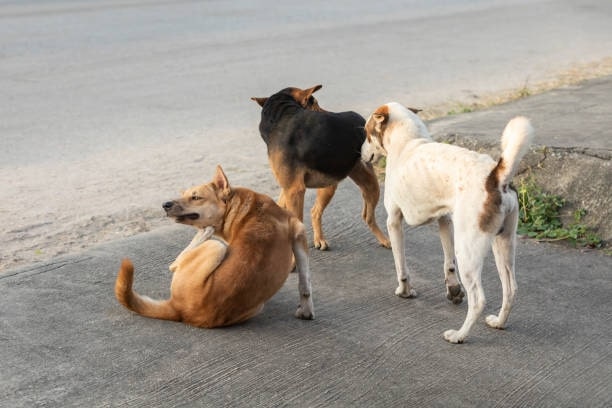
Soi dogs are stray dogs that roam the streets of Bangkok, and they can be aggressive and territorial. It’s important to avoid them and not try to pet them, as they may carry diseases such as rabies.
| Local tip: If you encounter a soi dog, it’s best to keep your distance and not make any sudden movements. Avoid making eye contact with the dog, as this can be seen as a sign of aggression. If a soi dog approaches you, try to remain calm and move slowly away. |
Avoid motorcycle taxis
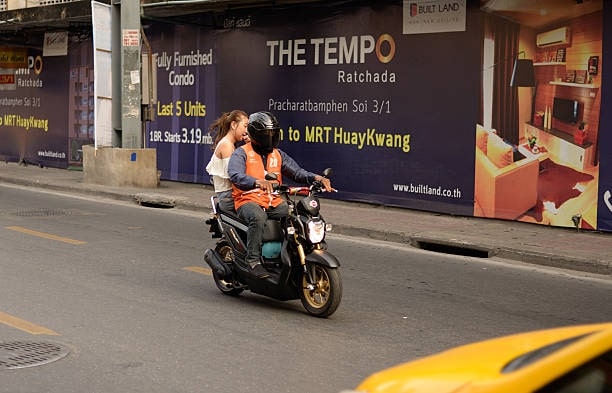
While motorcycle taxis can be a quick and convenient way to get around in Bangkok, they can also be risky. The drivers may not follow traffic rules and may take shortcuts through crowded areas, increasing the risk of accidents.
Additionally, they may not provide helmets for passengers, which is a significant safety concern. It’s generally recommended to avoid motorcycle taxis and opt for licensed taxis or ride-sharing services instead to ensure your safety.
| Local tip: If you must take a motorcycle taxi, it’s best to use the ones that are registered and have an orange vest. Negotiate the price beforehand and wear a helmet at all times. We also recommended holding onto the handlebars tightly and avoiding using your phone or any distractions while riding. |
Be cautious when crossing the street
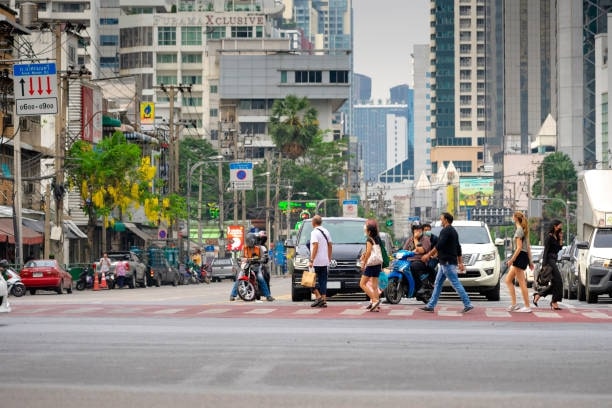
Crossing the street in Bangkok can be challenging and requires caution. Pedestrians should always use designated crosswalks or pedestrian bridges when available and wait for the signal to cross the road.
Even when the pedestrian signal shows green, it’s essential to be aware of traffic, especially motorcycles and tuk-tuks, which may not always follow the rules.
Always look both ways before crossing the street and be prepared to stop or change direction quickly if needed.
Additionally, avoid using mobile phones or headphones while crossing the road, as it can distract you from the surroundings and increase the risk of accidents.
| Local tip: Be mindful of motorbikes and tuk-tuks that may be weaving in and out of traffic, as they can be harder to spot. |
Keep valuables in a safe or hidden location
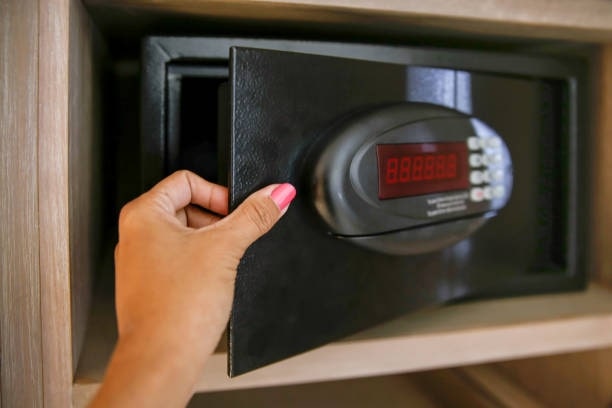
When travelling to Bangkok, it’s advisable to keep your valuables, such as passports, cash, and electronics, in a secure and hidden location. Most hotels and guesthouses offer safes where you can store your valuables while you’re out exploring.
If you don’t have access to a safe, consider hiding your valuables in an inconspicuous location in your room, like inside your suitcase or under the mattress.
| Local tip: It’s also a good idea to carry a photocopy of your passport and other important documents with you and leave the originals in a safe place. |
Be aware of pickpockets in crowded areas
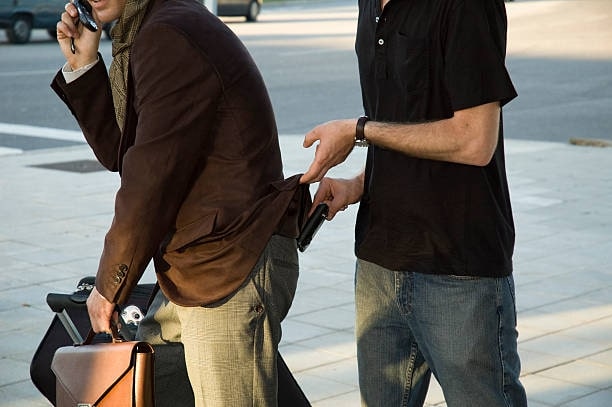
Pickpocketing is a common problem in Bangkok, particularly in crowded areas like markets, tourist attractions, and public transport.
Thieves often work in teams, with one distracting the victim while the other steals their belongings.
| Local tip: To avoid falling victim to pickpockets, keep your valuables in a secure bag or pocket, and be mindful of your surroundings. Avoid wearing expensive jewellery or carrying large sums of cash, and consider using a money belt or hidden pouch. |
Stay in well-lit and populated areas at night
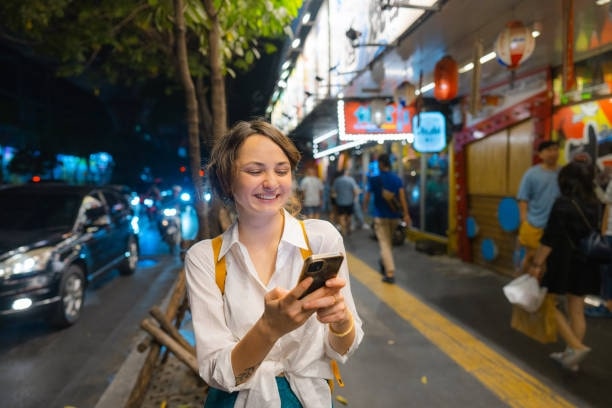
Although Bangkok is generally a safe city, it’s still advisable to take precautions when walking around at night. Stick to well-lit and populated areas, and avoid deserted streets or alleyways.
| Local tip: If possible, travel with a group or take a taxi or tuk-tuk rather than walking alone. Stay alert and aware of your surroundings, and avoid using headphones or being distracted by your phone. |
Be aware of sex tourism
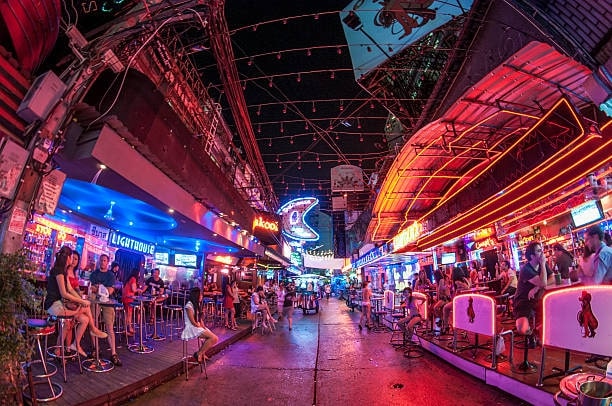
Prostitution is illegal in Thailand, but it still exists. Visitors should be cautious of people offering sexual services, as they may be involved in sex trafficking or exploitation.
Remember that Thailand is one the countries that has the highest rates of HIV in Southeast Asia, so it’s crucial to practise safe sex and use protection if engaging in sexual activity.
| Local tip: If you are approached by someone offering sexual services, it’s best to decline and report the incident to the authorities. |
Don’t leave drinks unattended
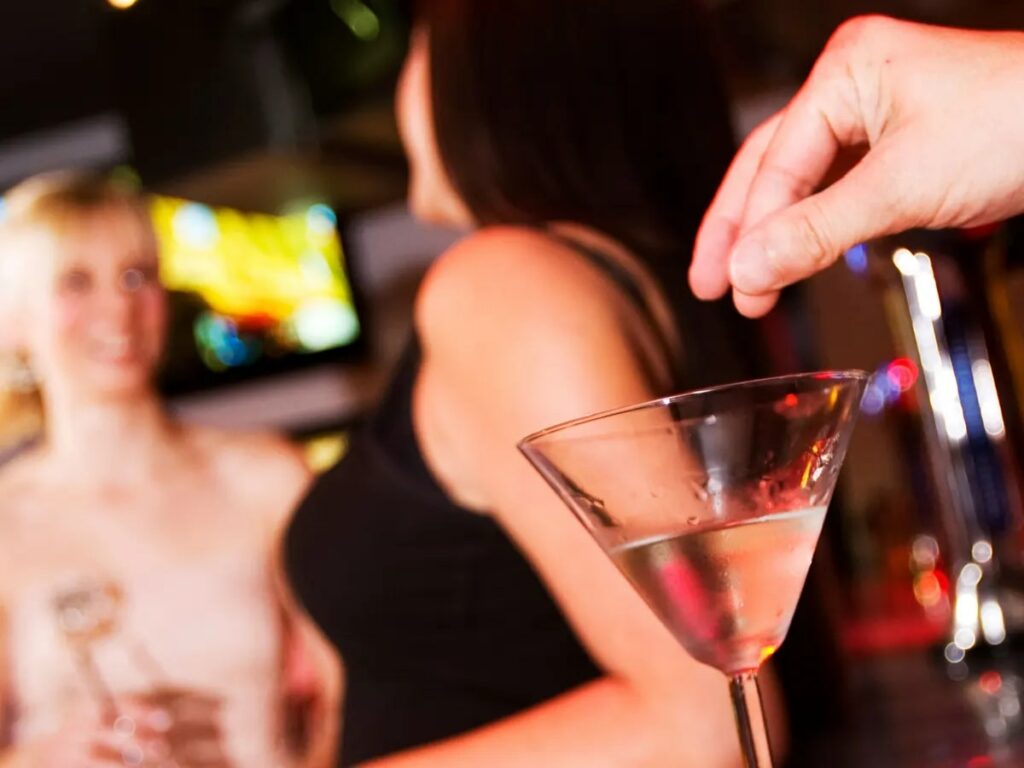
Spiked drinks are a concern in Bangkok, particularly in tourist areas like pubs or nightclubs. To avoid being drugged, never leave your drink unattended, even for a moment. If you’re unsure about the safety of a drink, don’t drink it.
Stick to bottled water or drinks from reputable bars and restaurants. Be wary of people who offer to buy you a drink, and don’t accept drinks from strangers.
| Local tip: If you must leave your drink unattended, it’s better to order a new one rather than risk drinking from the old one. |
Learn some Thai
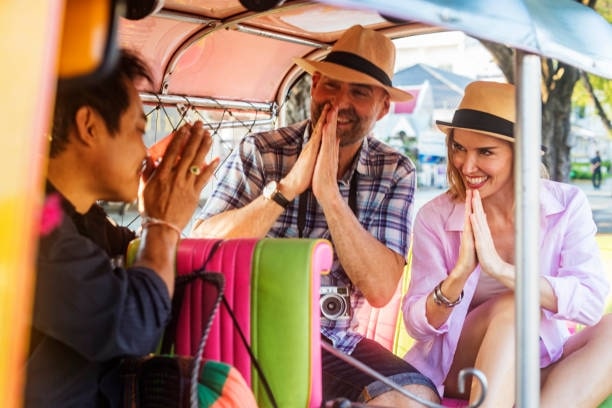
Learning a few basic phrases in Thai can go a long way in making your trip more enjoyable. The locals appreciate visitors who try to speak their language, even if it’s just a few words.
Common phrases include “Sawadee ka/krap” for “Hello,” “Khob khun ka/krap” for “Thank you,” and “Chai” for “Yes.”
| Local tip: Use the wai, the traditional Thai greeting, which involves placing your palms together in a prayer-like gesture and bowing your head slightly. This is a sign of respect and will be appreciated by locals. |
Don’t insult the Thai monarchy
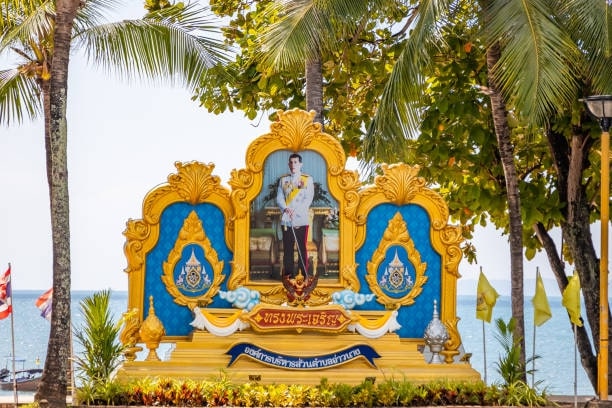
The Thai people hold their monarchy in high regard, and insulting the monarchy is considered a serious offence. It’s important to be respectful and avoid any discussions or comments that could be interpreted as criticism.
It’s also important to be aware of the strict lèse-majesté laws in Thailand, which make it illegal to insult or criticise the monarchy.
| Local tip: If someone else talks about the monarchy, it’s important to remain neutral and not express any negative opinions. |
Exercise caution in wearing red or yellow
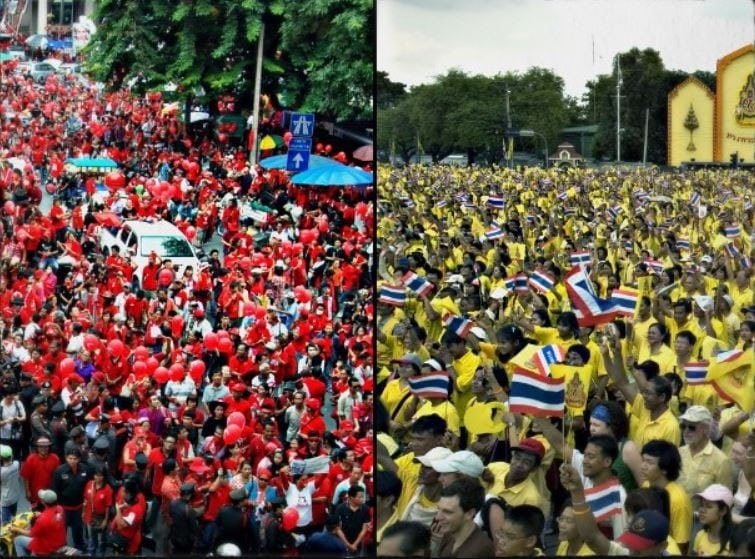
Wearing red or yellow clothing can be seen as a political statement, especially during times of political unrest. It’s best to avoid wearing these colours, especially if you plan to visit areas where protests are likely to occur.
| Local tip: If you plan on attending any political rallies or demonstrations, it’s best to dress in neutral colours and avoid wearing red or yellow altogether. It’s also important to be aware of your surroundings and avoid any areas where political tensions are high. |
Know the location of the nearest embassy or consulate
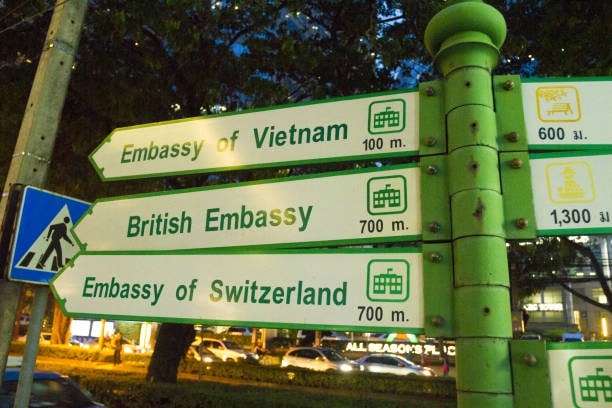
Be aware of the location of your country’s embassy or consulate in Bangkok. In case of an emergency, such as losing your passport or needing medical assistance, the embassy can help you out.
It’s also useful to know the address and contact information of the embassy or consulate in case you need to visit them for any reason.
Most embassies and consulates have websites that provide detailed information on their location and services they offer, so it’s worth looking up before you travel to Bangkok.
| Local tip: If you’re travelling with family or friends, make sure they know the location of the embassy or consulate, so they can help in case of an emergency. |
Keep important documents and emergency numbers with you
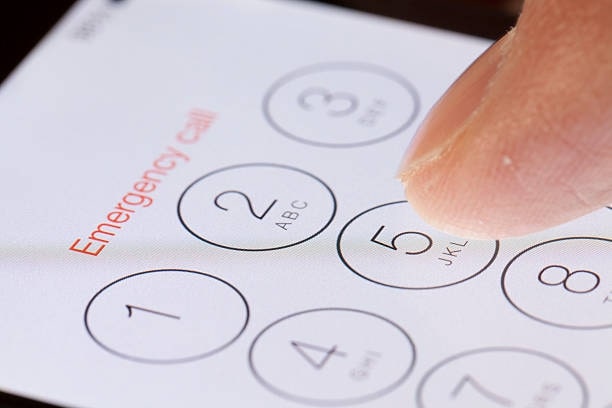
It’s a good idea to keep all important documents, including your passport, visa, travel insurance, and emergency contact information, in one place. You can keep them in a travel document holder or a small bag that you carry with you at all times.
In case of an emergency, you can quickly access the documents you need. Make sure you also have a copy of these documents, and keep them in a separate location, such as your hotel room or with a trusted friend or family member.
| Local tip: It’s helpful to have a list of emergency numbers, such as the embassy or consulate, local hospitals, and the police, so you can quickly call for assistance if needed. |
Have a plan in case of a natural disaster or emergency situation
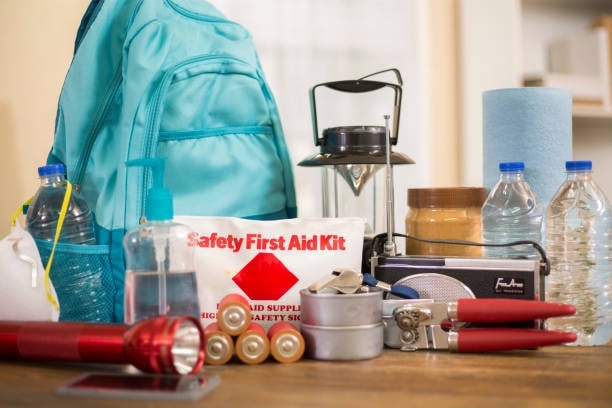
Bangkok is prone to natural disasters such as flooding and earthquakes. It’s important to be prepared for these situations by having a plan in place.
Familiarise yourself with the evacuation routes in your hotel or accommodation, and follow any instructions given by local authorities.
Have a backup plan in case you need to leave quickly, such as a meeting point with family or friends.
Additionally, pack an emergency kit with essentials such as non-perishable food, water, a first-aid kit, and a flashlight, in case you need shelter in place.
| Local tip: Keep yourself updated on weather forecasts and any potential risks in the area you’re visiting. Bangkok can experience heavy rainfall, floods, and even earthquakes, so it’s important to stay informed and take necessary precautions. |
Is Bangkok safe for female and solo travellers?
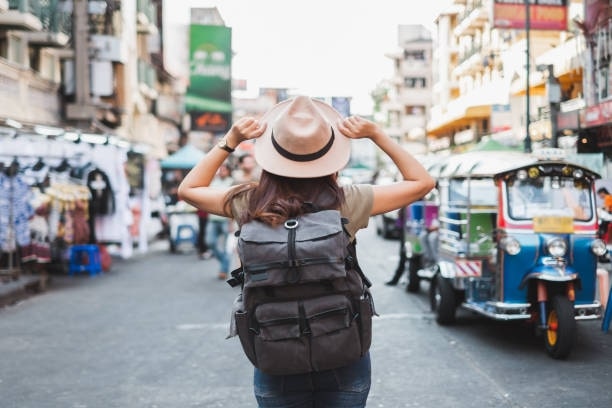
Bangkok can be a safe destination for female and solo travelers if certain precautions are taken. Like any big city, there are areas that are safer than others, and it’s important to research and choose safe accommodations and neighborhoods.
As a woman travelling solo in Bangkok, it’s important to prioritise your safety. In addition to the general safety tips mentioned earlier, here are some additional tips specifically for women:
| 5 Tips for Women and Solo Travelers in Bangkok |
|---|
| 1. Consider taking self-defence classes to prepare yourself for unexpected situations. 2. Trust your instincts and avoid situations or people that make you feel uncomfortable or unsafe. 3. Carry a personal safety alarm or whistle to use in case of emergency. 4. Avoid sharing too much personal information with strangers and be cautious of accepting invitations from unfamiliar individuals. 5. Stay sober and aware of your surroundings to make quick and safe decisions. |
